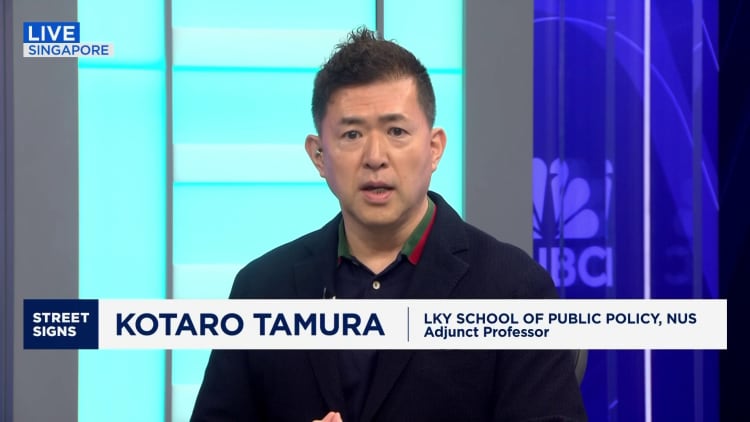Japan’s Prime Minister Shigeru Ishiba (top C) delivers an election campaign speech in support of the Liberal Democratic Party candidate in Chiba on October 19, 2024.
Yuichi Yamazaki | Afp | Getty Images
Japan’s Liberal Democratic Party is set to lose its parliamentary majority, with analysis and exit polls by local news suggesting it could even fall short with its coalition partner.
As polls closed at 8 p.m. local time Sunday, the decision desk of NHK, Japan’s national public broadcaster, predicted a tight race. It forecast the LDP wouldn’t be able to reach a majority on its own, adding that it could gain 174 to 254 seats with its coalition partner Komeito. A party or coalition bloc needs to hit the threshold of 233 seats to win power in Japan’s lower house, which has a total of 465 seats.
Nikkei Asia also projected that the LDP was at risk of losing its majority in the lower house, based on “exit surveys of voters and other factors.” The Constitutional Democratic Party (CDP) and the Democratic Party for the People (DPP) are both expected to gain seats, Nikkei Asia added.

Japan’s voters on Sunday headed to the polls in an election that was expected to shake up the ruling Liberal Democratic Party’s control over parliament. If the final results match the projections, then it would be the first time since 2009 that the LDP has lost its majority.
Shigeru Ishiba succeeded Fumio Kishida as prime minister on Oct. 1. He called for a general election on Sept. 30 after winning the party’s election against rival Sanae Takaichi.
The LDP’s election campaign has been dogged by concerns over inflation, as well as corruption scandals which have divided the party.
Ishiba has vowed to reduce the burden on households suffering from rising living costs and showed intentions to boost rural revitalization, as Japan’s countryside suffers from a broader demographic crisis and an aging population. When the slush fund scandal came to light, four cabinet ministers, as well as other senior party officials were replaced by Kishida.










